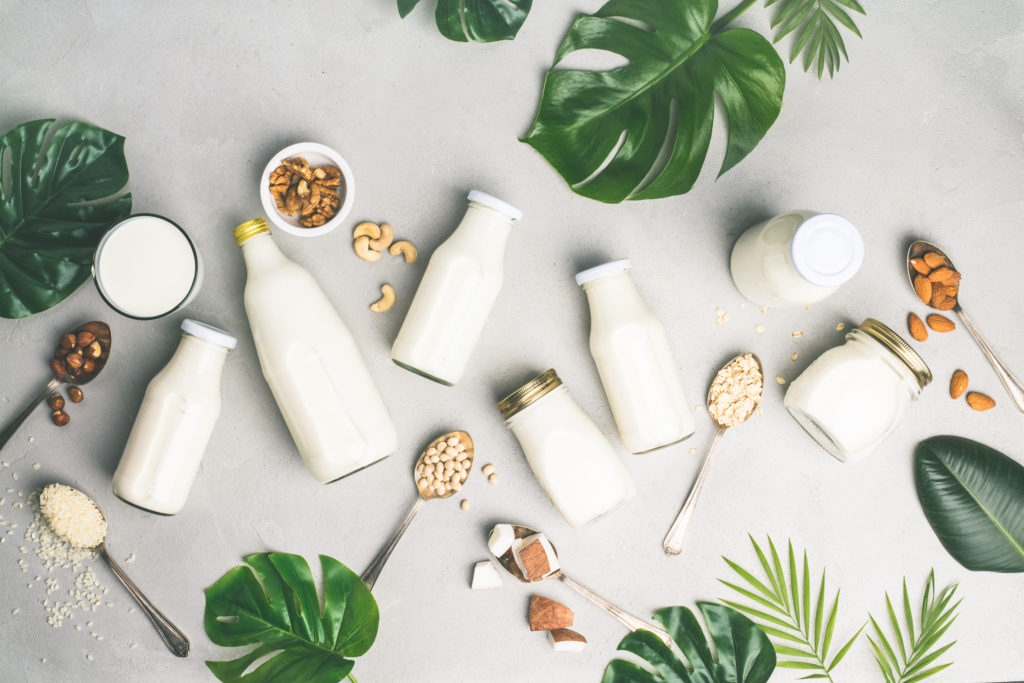15th June 2022
The Growing Plant-Based Market in 2022 – Dairy Alternatives
Introduction
The plant-based dairy market is well established, with nearly half of all consumers saying that they turn to such products to some extent. With the dairy alternative market starting to mature, consumers are looking to expand beyond the category of plant-based milk into other dairy-alternative products.

Health Impacts
One of the main reasons consumers are turning to plant-based dairy products is due to the health benefits of these products and some of the negative connotations surrounding dairy products. Due to the impact of the pandemic, there’s an increasing concentration on preventative health. Consumers are more aware of how different aspects of their health can impact their overall well-being and are looking to protect themselves against potential health threats. FMCG Gurus consumer insights found that 71% of consumers who eat or drink dairy alternatives do so as they view plant-based alternatives to be healthier than regular milk products.
There is room in the plant-based dairy market to appeal to health-conscious consumers with fortified dairy alternative products, especially those who are concerned that they will be missing out on certain nutrients if they remove or reduce dairy in their diets. The last couple of years has resulted in consumers taking a greater interest in functional ingredients and how they can provide a health boost beyond basic nutrition. In particular, consumers want to maximize their protein intake with 77% of consumers associating protein with benefitting general health and wellness. Brands should make sure that health claims are labeled clearly to help reassure consumers that they are not making a compromise when purchasing plant-based dairy products.
Additionally, to improve their health, consumers are looking to reduce the amount they snack. However, many consumers say that due to a lack of time they often replace meals with snacks. Therefore, brands should look to provide accessible and convenient products for consumers who lack time and are likely to turn to snacks. This can help reassure consumers that the products are guilt-free and conveniently nutritious.

Environmental Impacts
Another main reason for consumers turning to plant-based dairy products is sustainability. Recently, there has been attention on the impact the dairy industry has on the environment and the potential ethical issues surrounding dairy farming. Many consumers are looking for products that have less of a negative impact on the environment and are more sustainable.
FMCG Gurus consumer insights found that, globally, 75% of people think sustainability claims are important when buying dairy alternative products. Therefore, it is important that brands make their sustainability claims clear and readily available. However, as many consumers are skeptical of claims made, it is also important that brands are able to back up their claims with evidence.
Barriers to Overcome
As with plant-based meat products, many consumers looking for dairy alternatives say that they want the products to taste as close to dairy products as possible. Although health and sustainability claims are increasingly important to consumers, taste is still the most important factor for most when choosing products. FMCG Gurus consumer insights found that 60% of global consumers who eat or drink dairy alternatives say that it is important that dairy alternatives can be used in the same way as dairy products. Brands should make sure that their products can be used as similarly to dairy products as possible.
50% of consumers state that they would prefer for dairy alternatives to be labeled as plant-based as opposed to vegan friendly. This could be due to plant-based products being associated with purity and naturalness, whereas vegan-friendly products may be associated with compromise or sacrifice. Additionally, 42% of consumers who have seen the V-label sign associated it with a premium price, this could act as a barrier for brands. To overcome this, brands should offer affordable options to appeal to a wider market.